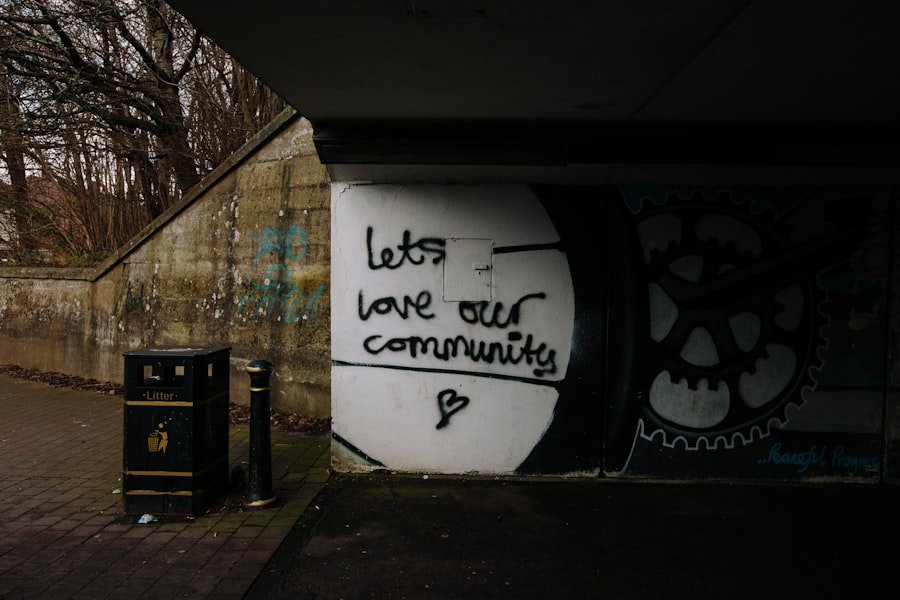Creating a Commune: A Step-by-Step Guide

Communal living is a lifestyle in which a group of people choose to live together and share resources, responsibilities, and decision-making. This concept has been around for centuries and has been practiced by various cultures and communities around the world. The idea behind communal living is to create a sense of belonging, cooperation, and mutual support among its members. It promotes the sharing of living spaces, meals, chores, and even finances, with the goal of creating a more sustainable and harmonious way of life.
In a commune, individuals come together to form a close-knit community where they can live, work, and socialize together. This can be an attractive option for those who are looking for a more affordable way of living, as expenses are shared among the members. Communal living also fosters a sense of belonging and connection, as members work together towards common goals and share in each other’s successes and challenges. It can also provide a support system for its members, as they navigate through the ups and downs of life together.
Finding the Right Location for Your Commune
When it comes to establishing a commune, finding the right location is crucial. The location will not only determine the physical environment in which the commune will exist but also the legal and regulatory framework that will govern it. It’s important to consider factors such as climate, access to resources, proximity to urban areas, and local zoning laws when choosing a location for your commune.
Some communes may choose to establish themselves in rural areas, where they can have access to land for farming and a more peaceful and natural environment. Others may prefer to be closer to urban centers, where they can have access to job opportunities, cultural activities, and essential services. Additionally, it’s important to research the local laws and regulations regarding communal living, as some areas may have restrictions or specific requirements for communal living arrangements.
Ultimately, the right location for a commune will depend on the specific goals and needs of its members. It’s important to have open discussions and consider various options before making a decision. Finding a location that aligns with the values and vision of the commune will be essential for its long-term success.
Creating a Business Plan and Attracting Investors
Establishing a commune requires careful planning and organization. Creating a business plan can help outline the goals, structure, and financial projections for the commune. This plan should include details about the communal living arrangements, shared expenses, income-generating activities, and long-term sustainability goals. It’s important to consider the legal and financial aspects of communal living, as well as potential challenges and risks that may arise.
Attracting investors can also be an important step in establishing a commune. Investors may be interested in supporting communal living initiatives that align with their values and investment goals. It’s important to present a clear and compelling case for why the commune is a viable and sustainable investment opportunity. This may involve showcasing the potential for income generation through communal activities such as farming, eco-tourism, or artisanal production. Additionally, highlighting the social and environmental benefits of communal living can help attract investors who are passionate about supporting sustainable and community-oriented projects.
Ultimately, creating a business plan and attracting investors will require careful research, strategic planning, and effective communication. It’s important to be transparent about the opportunities and challenges of communal living, as well as the potential returns on investment. Building a strong business case for the commune will be essential for securing the necessary resources to bring the vision to life.
Establishing Rules and Guidelines for Communal Living
| Rules and Guidelines for Communal Living | Metrics |
|---|---|
| Number of established rules | 20 |
| Number of guidelines | 15 |
| Percentage of residents involved in rule-making process | 80% |
| Number of communal meetings held to discuss rules | 10 |
In order for a commune to function smoothly, it’s important to establish clear rules and guidelines for communal living. This may include agreements about shared expenses, chores, decision-making processes, conflict resolution, and community participation. These rules should be developed through open discussions and consensus-building among the members of the commune.
It’s important to create a balance between individual autonomy and collective responsibility within the commune. This may involve establishing guidelines for personal space, privacy, and decision-making autonomy while also outlining expectations for contributing to communal activities and responsibilities. Additionally, it’s important to establish mechanisms for resolving conflicts and addressing grievances in a fair and respectful manner.
Creating rules and guidelines for communal living can help foster a sense of order, accountability, and mutual respect within the community. It can also provide a framework for addressing potential challenges or disagreements that may arise. Ultimately, clear rules and guidelines can help create a harmonious and sustainable living environment for all members of the commune.
Building a Sustainable and Eco-Friendly Community
Sustainability is often a key value for communes, as many seek to minimize their environmental impact and live in harmony with nature. Building a sustainable and eco-friendly community may involve practices such as organic farming, renewable energy production, waste reduction, water conservation, and eco-friendly building design. These practices can help reduce the ecological footprint of the commune while also promoting a healthier and more self-sufficient way of life.
In addition to environmental sustainability, many communes also prioritize social and economic sustainability. This may involve creating income-generating activities within the community, such as artisanal production, eco-tourism, or sustainable agriculture. It may also involve fostering strong social connections, mutual support networks, and opportunities for personal growth and development among its members.
Building a sustainable and eco-friendly community requires commitment, creativity, and collaboration among its members. It’s important to continuously evaluate and improve upon sustainable practices while also adapting to changing environmental and social conditions. Ultimately, creating a sustainable community can have far-reaching benefits for its members as well as the broader environment.
Handling Finances and Shared Expenses

One of the key aspects of communal living is the sharing of expenses among its members. This may include costs related to housing, utilities, food, transportation, healthcare, and other communal needs. It’s important to establish clear financial agreements and systems for managing shared expenses within the commune.
Handling finances in a commune may involve creating a communal fund or budget that all members contribute to based on their individual means. This fund can then be used to cover communal expenses as well as investments in income-generating activities or community development projects. It’s important to establish transparent accounting practices and decision-making processes regarding how communal funds are allocated and managed.
Additionally, it’s important to consider individual financial autonomy within the commune. Some members may have personal income or assets that they wish to maintain control over while still contributing to communal expenses. It’s important to establish clear guidelines for how individual finances are managed within the context of communal living.
Ultimately, handling finances in a commune requires open communication, trust, and accountability among its members. It’s important to create systems that promote fairness, transparency, and collective responsibility while also respecting individual autonomy and financial privacy.
Resolving Conflicts and Maintaining Harmony within the Commune
Conflict is inevitable in any community setting, including communes. It’s important to establish effective mechanisms for resolving conflicts and maintaining harmony within the commune. This may involve creating clear communication channels, conflict resolution processes, mediation services, or community meetings where issues can be openly discussed.
It’s important to foster a culture of open communication, active listening, empathy, and respect within the commune. Members should feel comfortable expressing their concerns or grievances while also being willing to listen to others’ perspectives with an open mind. Creating an atmosphere of mutual understanding and cooperation can help prevent conflicts from escalating while also promoting a sense of unity within the community.
Additionally, it’s important to address conflicts in a timely manner before they have a chance to fester or negatively impact the overall harmony of the commune. This may involve seeking outside support from conflict resolution professionals or mediators when necessary. It’s important to approach conflicts with patience, empathy, and a willingness to find mutually beneficial solutions that respect the needs and values of all members.
Ultimately, resolving conflicts and maintaining harmony within the commune requires ongoing effort, communication, and collaboration among its members. By fostering a culture of understanding and cooperation, communes can create an environment where conflicts are addressed constructively while promoting a sense of unity and mutual support among its members.
Looking to start a commune but not sure where to begin? Check out this insightful article on howtostart.digital that provides a comprehensive guide on the essential steps to kick-starting your own commune. From finding the right location to establishing communal living agreements, this article offers valuable tips and advice for anyone interested in creating a sustainable and harmonious community. Whether you’re a seasoned communal living enthusiast or just starting out, this article is a must-read for anyone embarking on this unique journey. Learn more here.
FAQs
What is a commune?
A commune is a group of people who live together and share resources, responsibilities, and decision-making. Communes can vary in size and structure, but they typically emphasize cooperation, sustainability, and community living.
How do you start a commune?
To start a commune, you will need to find like-minded individuals who are interested in communal living. It’s important to establish a clear vision, values, and goals for the commune, as well as a legal and financial structure. Finding a suitable location, securing funding, and creating a plan for governance and decision-making are also important steps in starting a commune.
What are the benefits of living in a commune?
Living in a commune can offer a sense of community, shared resources, reduced living expenses, and a focus on sustainability and environmental stewardship. Communal living can also provide opportunities for personal growth, collaboration, and a more balanced lifestyle.
What are some challenges of living in a commune?
Challenges of living in a commune can include navigating group dynamics, decision-making processes, and conflicts. Communal living also requires a commitment to shared responsibilities, communication, and compromise. Additionally, finding a suitable location and securing funding for a commune can be challenging.
Are there different types of communes?
Yes, there are different types of communes, including intentional communities, ecovillages, co-housing communities, and religious or spiritual communities. Each type of commune may have its own specific focus, values, and structure.





